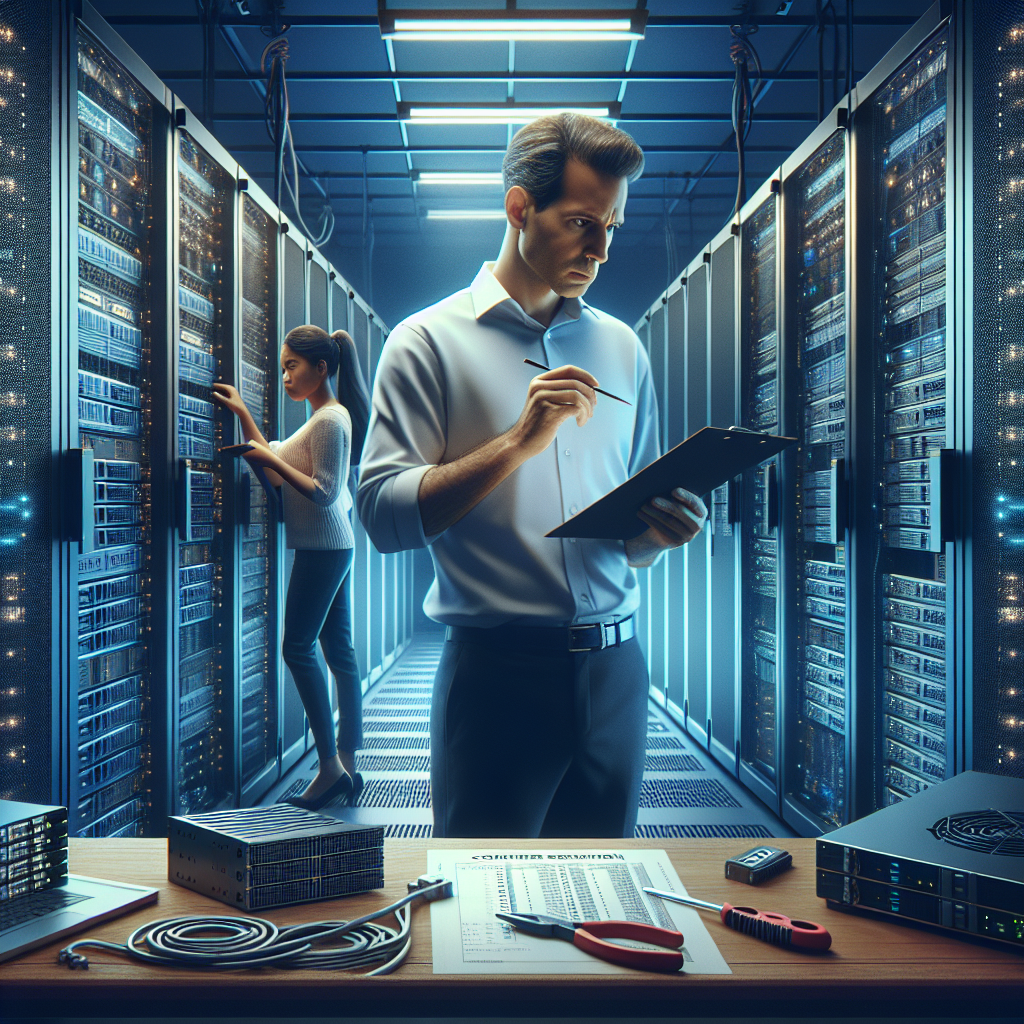Key Factors to Consider During a Data Center Inspection
Data centers are the backbone of any organization’s IT infrastructure, housing and managing critical data and systems. As such, it is crucial to ensure that data centers are functioning optimally and securely. One way to do this is through regular inspections to identify any potential issues or vulnerabilities. Here are some key factors to consider during a data center inspection:
1. Physical Security: The first thing to check during a data center inspection is the physical security measures in place. This includes access controls, surveillance cameras, and security personnel. Make sure that only authorized personnel have access to the data center and that there are no unauthorized devices or individuals present.
2. Environmental Controls: Data centers require precise environmental controls to ensure that equipment stays cool and operates efficiently. Check that cooling systems, humidity levels, and airflow are all functioning properly to prevent overheating and equipment failure.
3. Power Systems: Power is critical to the operation of a data center, so it is important to inspect the power systems thoroughly. This includes checking for redundant power supplies, backup generators, and uninterrupted power supply (UPS) systems to prevent data loss in the event of a power outage.
4. Network Infrastructure: The network infrastructure is another key component of a data center that should be inspected. Check for any network congestion, bottlenecks, or security vulnerabilities that could impact the performance and security of the data center.
5. Fire Suppression Systems: Data centers are at risk of fire due to the high concentration of electrical equipment. Inspect the fire suppression systems to ensure they are up to code and functioning properly to prevent any potential disasters.
6. Cable Management: Poor cable management can lead to equipment failure and downtime. Inspect the cable management systems to ensure that cables are organized, labeled, and properly routed to prevent any issues.
7. Equipment Maintenance: Regular maintenance of equipment is essential to prevent failures and downtime. Inspect all equipment, including servers, storage devices, and networking equipment, to ensure they are well-maintained and functioning properly.
8. Documentation: Finally, documentation is key to a successful data center inspection. Make sure that all systems, equipment, and processes are well-documented and up-to-date to facilitate future inspections and troubleshooting.
In conclusion, conducting regular data center inspections is crucial to ensuring the efficiency, security, and reliability of a data center. By considering these key factors during an inspection, organizations can identify and address any potential issues before they escalate into major problems.


